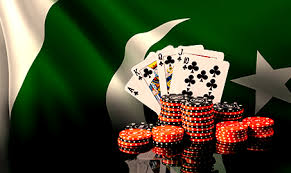
The online casino industry in Pakistan is growing, but it remains a subject of legal ambiguity and cultural sensitivity. Despite gambling being illegal under the country’s strict laws, many players still turn to offshore online casinos to enjoy their favorite games. These platforms, typically licensed in countries such as Malta, Curacao, and the UK, offer Pakistani players a variety of gambling options, from slots to live dealer games. However, the evolving digital gambling market in Pakistan brings both opportunities and challenges for the future of online gaming.
Legal and Regulatory Developments
The legal status of online casinos in Pakistan is complex. While local gambling laws strictly prohibit most forms of gambling, including online casinos, there is currently no active enforcement against individuals who access international platforms. This has led to a growing interest in digital gambling, especially among Pakistan’s younger, tech-savvy population. To address the growing demand for online gambling, experts have called for clear regulations that could help regulate the industry, ensure fair play, and provide tax revenue for the government
Market Growth and Player Behavior
The rise of internet connectivity and mobile usage has significantly impacted the online gambling market in Pakistan. With more people accessing the internet, especially in urban centers, online casino platforms are becoming increasingly popular. Players are not only looking for exciting casino games but also for secure and reliable platforms that offer responsible gambling features. As the market grows, operators are exploring ways to integrate local cultural values and enhance the gaming experience by introducing Urdu-language options and customer support.
Future Outlook: Challenges and Opportunities
Looking ahead, the online casino industry in Pakistan faces both challenges and opportunities. While the demand for online casinos is rising, the industry must navigate the country’s strict legal framework and cultural considerations. Successful operators will need to work with local regulators to create a legal and ethical gambling environment that balances the interests of both the players and the government. Education and awareness campaigns could play a key role in building trust among the public, dispelling misconceptions, and promoting responsible gambling.
In conclusion, while the future of online casinos in Pakistan remains uncertain, the industry’s growth potential is undeniable. With the right regulatory environment and a focus on cultural integration and responsible gambling practices, online casinos could carve out a legitimate space in Pakistan’s digital economy.


